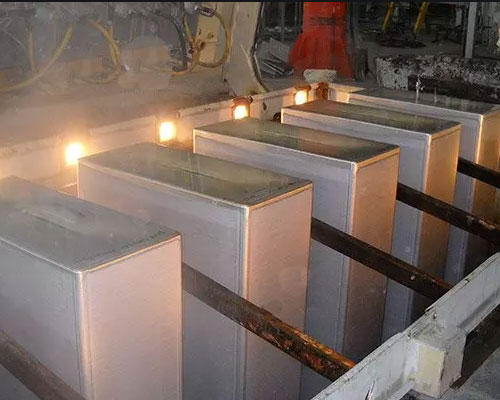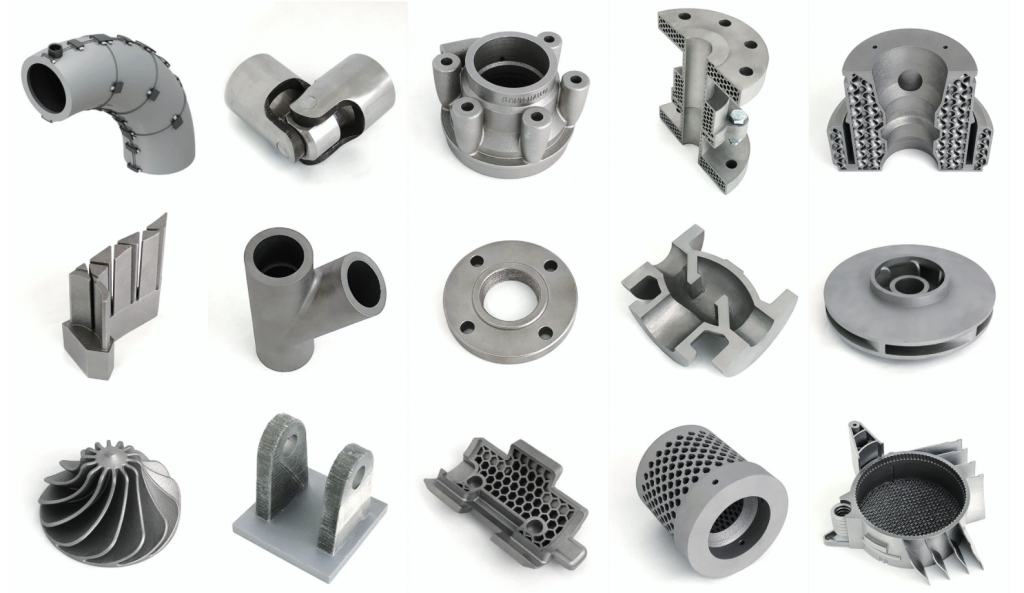Understanding the Manufacturing Refine and Upkeep Practices for Light Weight Aluminum Shop Products
The production procedure for light weight aluminum shop items is intricate and requires a thorough understanding of multiple stages. From the melting of aluminum at heats to different casting methods, each action plays an essential function. Additionally, upkeep practices ensure equipment remains effective and products are devoid of flaws. The complexities of these procedures and their influence on item top quality raising important concerns concerning finest methods and innovative strategies in the market.
Summary of Aluminum Factory Products
Aluminum shop items are essential components in various sectors, supplying a blend of lightweight toughness and rust resistance. These products are frequently used in fields such as vehicle, aerospace, and building, where sturdiness and efficiency are extremely important. Aluminum's low thickness makes it an excellent product for applications calling for reduced weight without giving up architectural stability. The adaptability of light weight aluminum permits for the creation of complicated geometries, providing to varied style requirements.
Aluminum factory items can be customized with numerous alloys to boost specific residential or commercial properties, such as improved thermal conductivity or enhanced hardness. Their resistance to oxidation and corrosion warranties long life, making them appropriate for both outdoor and interior applications. The mix of these attributes adds to the growing choice for light weight aluminum in modern production. As industries seek to maximize performance and sustainability, aluminum foundry items remain to play an important role in fulfilling these demands.
Thawing Refine: Transforming Aluminum
The melting process is an essential action in the manufacturing of aluminum shop products, as it changes strong light weight aluminum right into a molten state suitable for casting. This process usually takes place in a furnace, where scrap aluminum or ingots are heated up to temperatures around 660 levels Celsius. The choice of heater-- be it electrical, gas, or induction-- influences the effectiveness and cost of melting.
Throughout melting, careful consideration is given to the removal of pollutants, such as oxides and other pollutants, which can negatively impact the quality of the last product. Changes might be included in assist in this filtration process, improving the fluidity of the liquified metal.
On top of that, temperature level control is vital to ensure uniformity and stop overheating, which can cause oxidation. Consequently, the melting process not just prepares aluminum for casting yet also plays a significant role in determining the stability and residential properties of the last foundry products.
Casting Techniques in Light Weight Aluminum Shop
Various casting techniques are employed in light weight aluminum shops to create high-quality elements, each matched to different applications and requirements. Among one of the most frequently utilized approaches are sand spreading, die casting, and investment spreading. Sand casting makes use of a combination of sand and binder to form mold and mildews, enabling for huge components and complicated shapes (aluminum metal casting). Die casting, characterized by the high-pressure injection of molten aluminum into steel molds, produces repeatable and exact parts, ideal for mass manufacturing. Financial investment spreading, or lost-wax spreading, entails creating a wax model that is coated in a ceramic covering, making it possible for detailed layouts and great details. Each method has its benefits; sand spreading is cost-effective for low-volume production, while die casting supplies efficiency for high-volume runs. Investment casting is preferred for parts requiring phenomenal precision and surface area finish. Picking the suitable method relies on factors such as manufacturing volume, part complexity, and material buildings
Finishing Procedures for Light Weight Aluminum Parts
After casting strategies have actually formed the aluminum parts, completing processes play a significant role in improving their capability and aesthetic appeal. These processes typically consist of machining, surface area treatment, and layer applications. Machining entails specific elimination of product to accomplish preferred dimensions and surface quality. This is crucial for making sure that components fit effortlessly into their intended applications.
Surface area treatments, such as anodizing and polishing, are employed to enhance deterioration resistance and enhance visual qualities. aluminum casting company. Anodizing, specifically, supplies a safety oxide layer, making the aluminum a lot more durable and aesthetically attractive

Upkeep Practices for Longevity
Applying regular upkeep methods is vital for guaranteeing the longevity of light weight aluminum foundry items. Regular examinations must be carried out to identify damage, as very early discovery can stop expensive repairs find more and prolong the life expectancy of parts. Cleaning up equipment and machinery on a regular basis reduces the danger of contamination, which can negatively impact item high quality. Lubrication of moving components is likewise important, as it minimizes friction and wear, enhancing operational effectiveness.
In addition, the implementation of a precautionary upkeep routine assists in methodically attending to possible issues prior to they intensify (aluminum metal casting). This includes checking for leakages, guaranteeing appropriate alignment, and calibrating machinery. Personnel training on correct handling and upkeep strategies promotes a culture of care, which is important for sustaining product stability. Documenting upkeep activities supplies valuable insights into performance trends, permitting for informed decision-making pertaining to future upkeep strategies.
Quality Assurance and Testing in Light Weight Aluminum Foundry Manufacturing
Quality assurance and testing are paramount in aluminum foundry manufacturing, as they guarantee that end products satisfy specified standards and customer assumptions. This procedure starts with resources examination, making certain that light weight aluminum alloys follow needed structures. Throughout the production cycle, in-process evaluations are carried out to monitor criteria like temperature, pressure, and material flow.
Once casting is total, different examinations-- such as dimensional checks, visual assessments, and non-destructive testing-- are executed to identify any flaws. Mechanical properties, including tensile strength and firmness, are reviewed with standard testing techniques.
Furthermore, adherence to market criteria, such as ISO and ASTM, is critical for guaranteeing product top quality. Statistical procedure control strategies are often utilized to assess production information and help with continual renovation. By applying extensive top quality control actions, light weight aluminum factories can improve product reliability and decrease waste, ultimately resulting in higher consumer fulfillment and functional performance.
Regularly Asked Questions
What Are the Ecological Effects of Aluminum Shop Procedures?
Light weight aluminum foundry operations can bring about significant ecological influences, consisting of air contamination from discharges, read water contamination from waste discharge, and energy intake adding to greenhouse gas discharges, inevitably affecting neighborhood ecosystems and area health.
How Do Aluminum Prices Impact Foundry Production Decisions?
Light weight aluminum rates significantly influence foundry manufacturing choices; greater costs may lead to decreased output or raised efficiency actions, while reduced rates can encourage enhanced manufacturing and financial investment in new modern technologies to enhance competitiveness and productivity.
What Safety Actions Are Crucial in Light Weight Aluminum Foundries?
Vital security measures in light weight aluminum foundries include safety equipment, correct air flow to minimize inhalation of fumes, routine devices maintenance, training on emergency treatments, and adherence to safety methods to avoid accidents and injuries amongst employees.
Can Aluminum Be Recycled, and How Is It Refined?
Aluminum can undoubtedly be recycled. The process entails collection, melting, and reforming the product into new products, substantially minimizing energy consumption and ecological effect contrasted to key aluminum production while protecting material quality.
What Are Usual Defects in Aluminum Casting and Their Causes?

The production procedure for light weight aluminum factory products is detailed and calls for a comprehensive understanding of several phases. Light weight aluminum shop products are critical components in different sectors, using a mix of lightweight strength and corrosion resistance. The melting procedure is a basic step in the manufacturing of aluminum shop products, as it transforms solid light weight aluminum right into a molten state suitable for casting. Applying regular upkeep techniques is important for ensuring the longevity of aluminum shop products. Quality control and testing are critical in aluminum shop production, as they guarantee that final items satisfy specified requirements and client expectations.